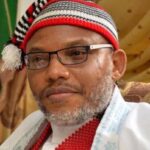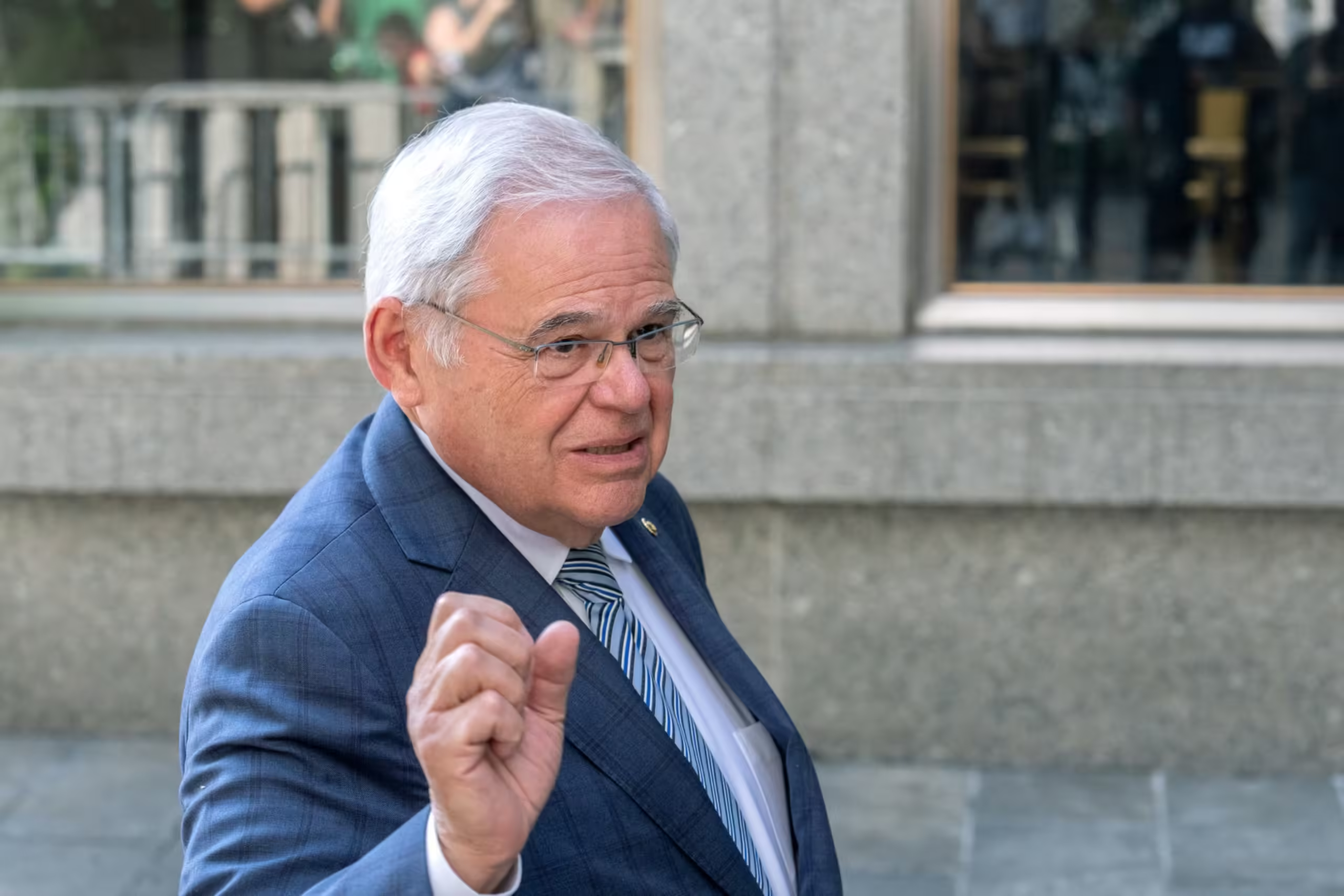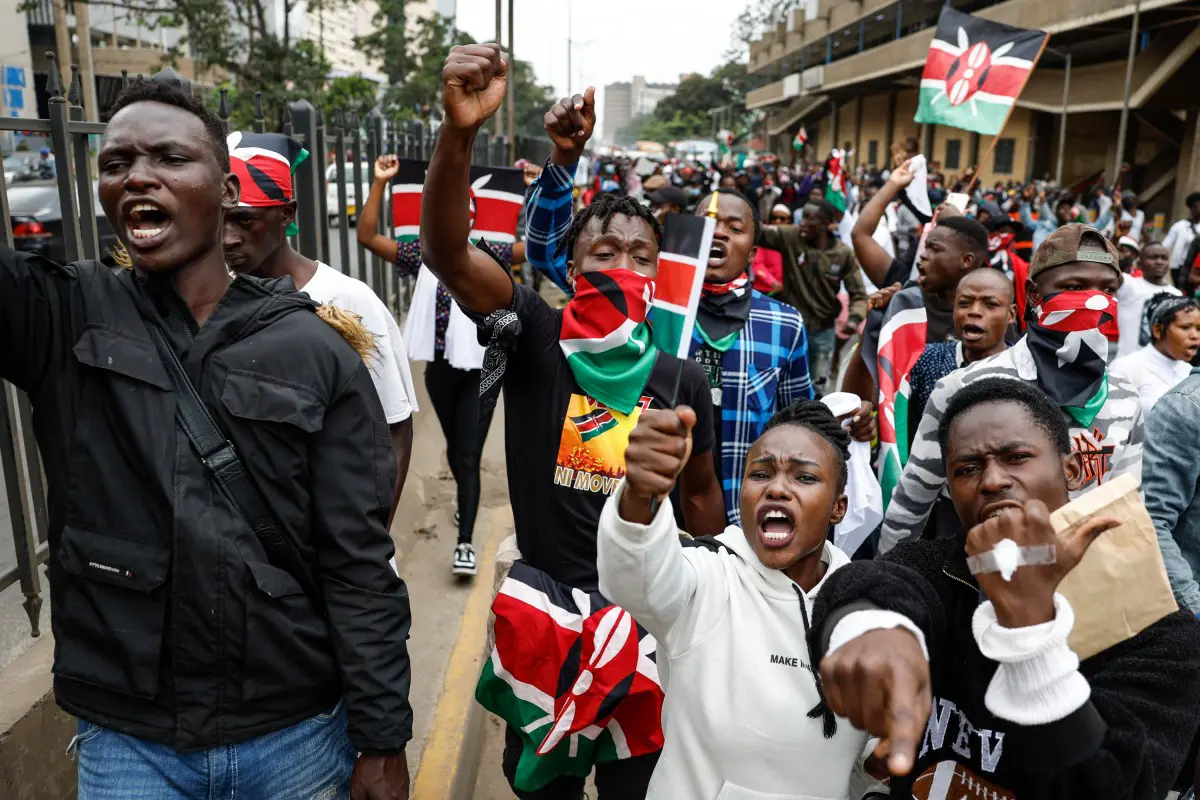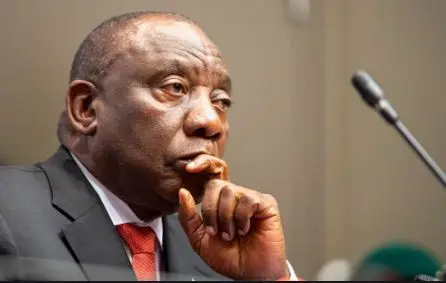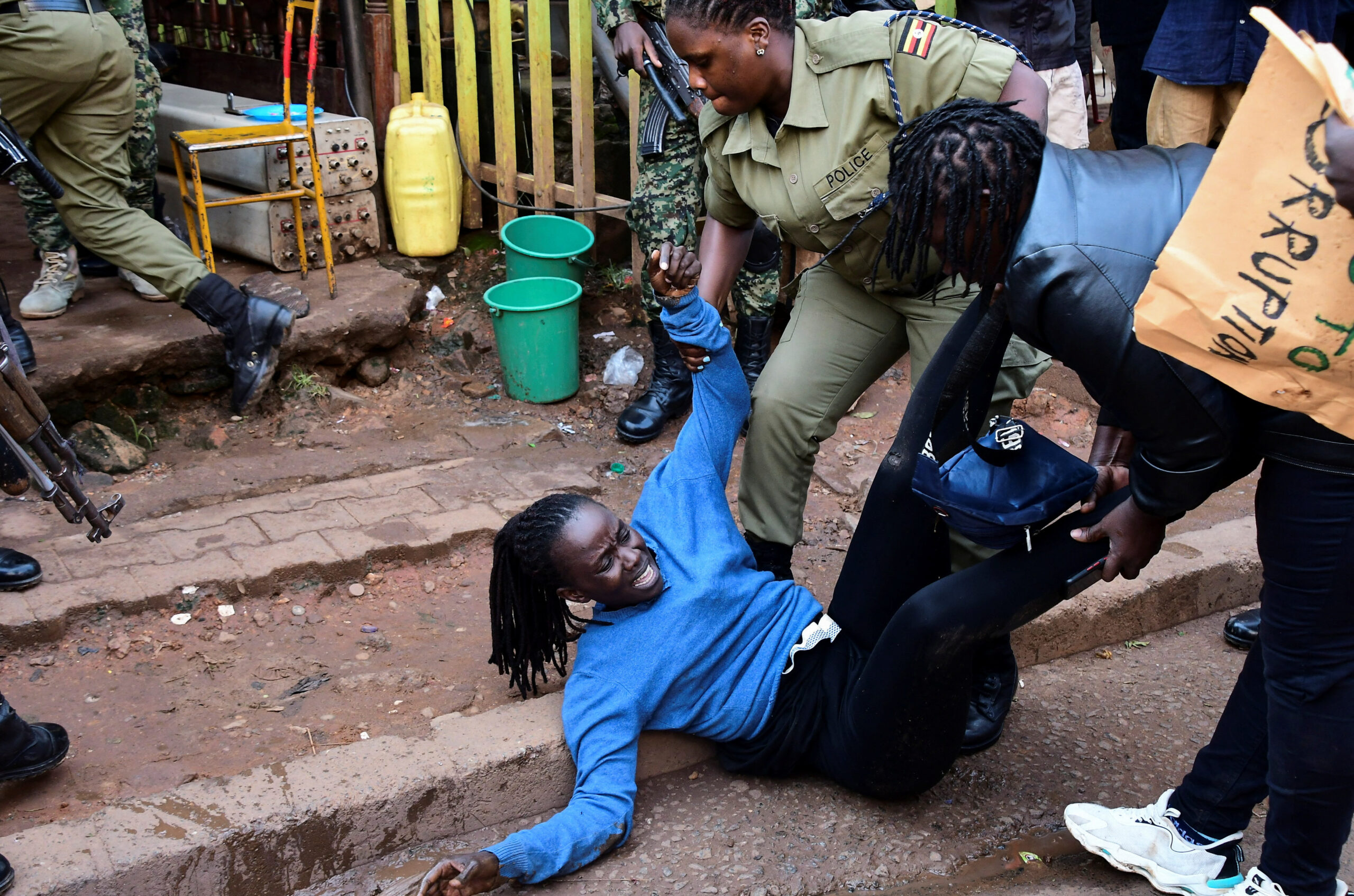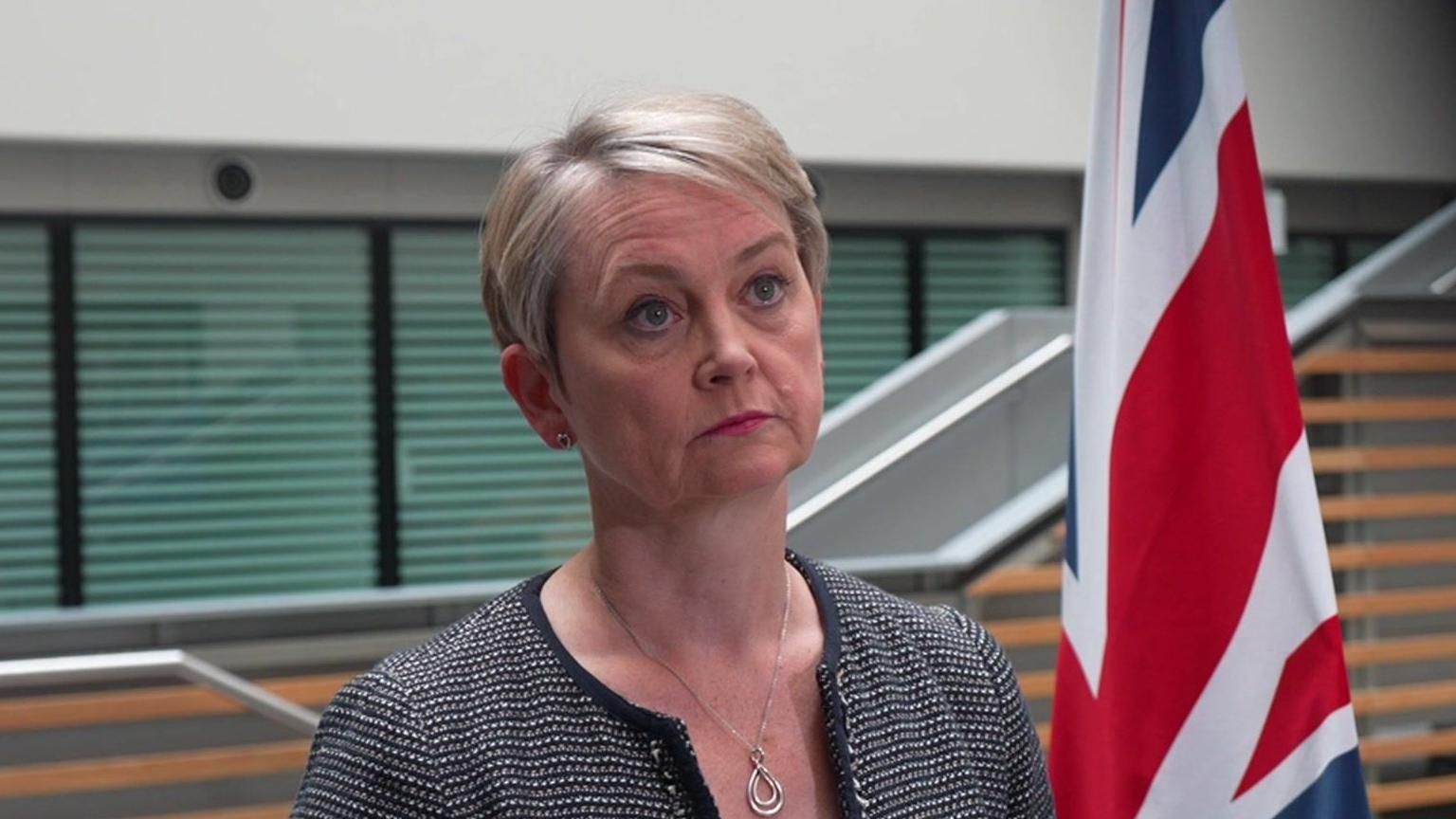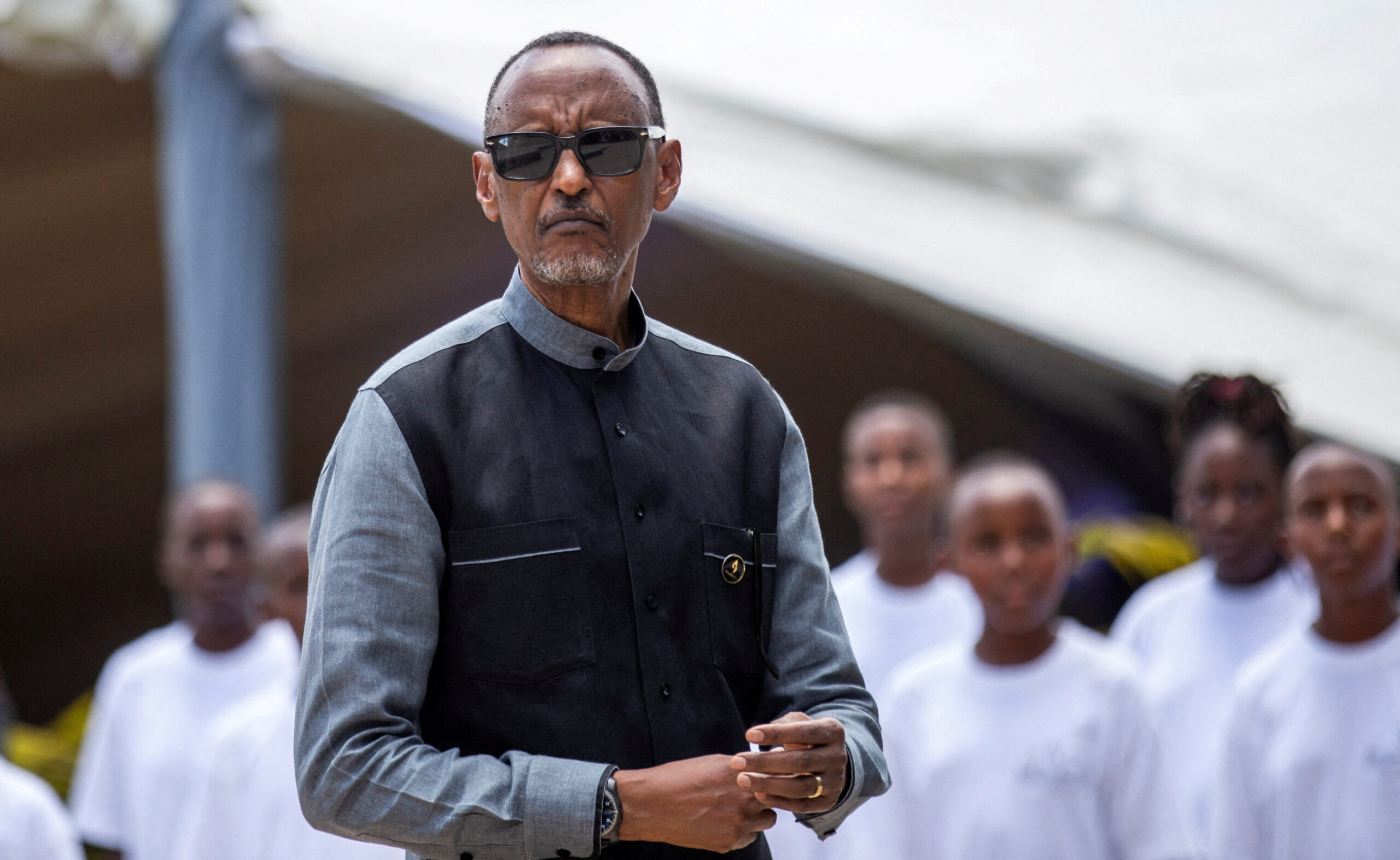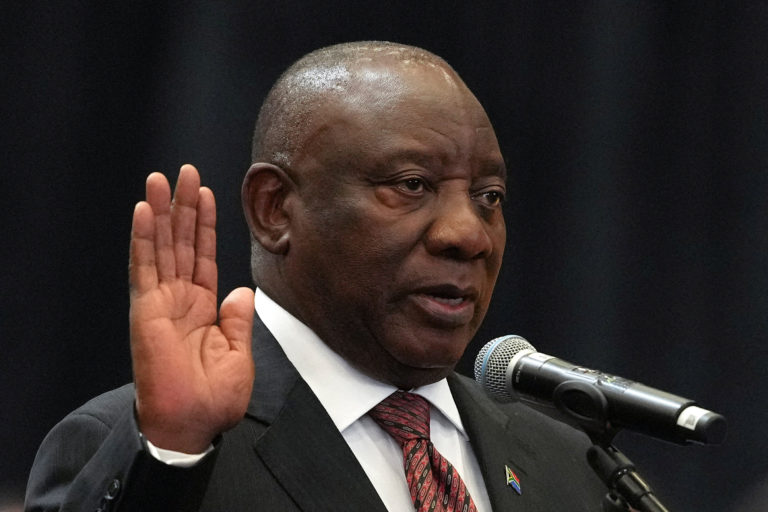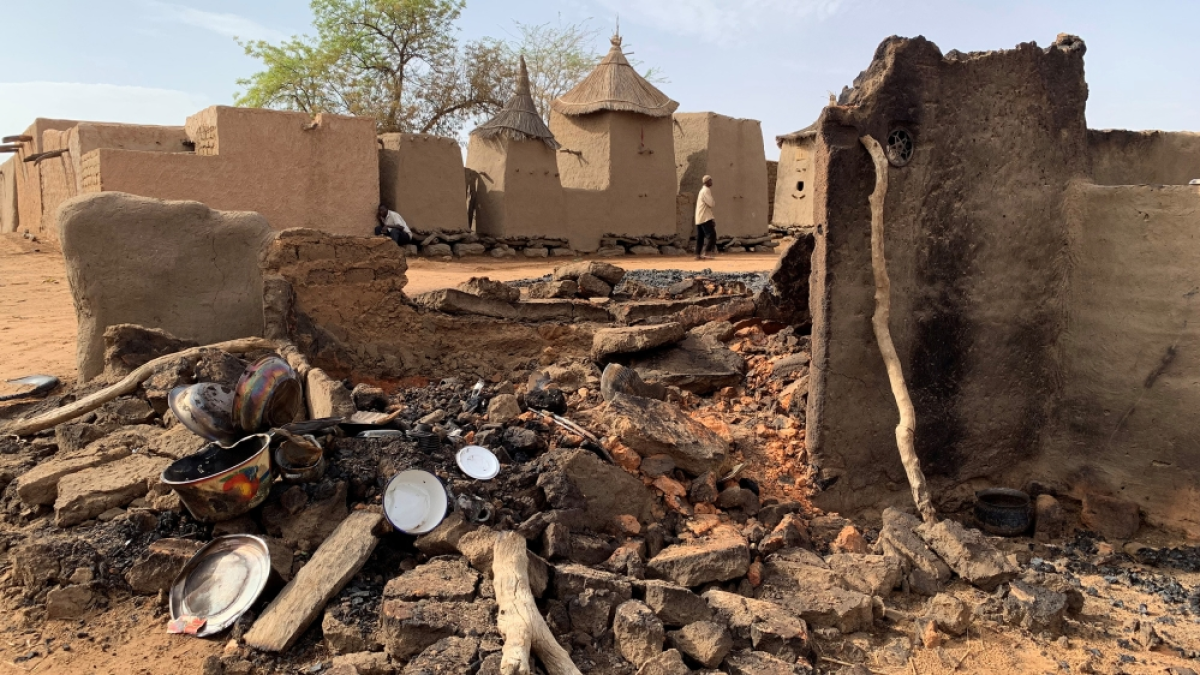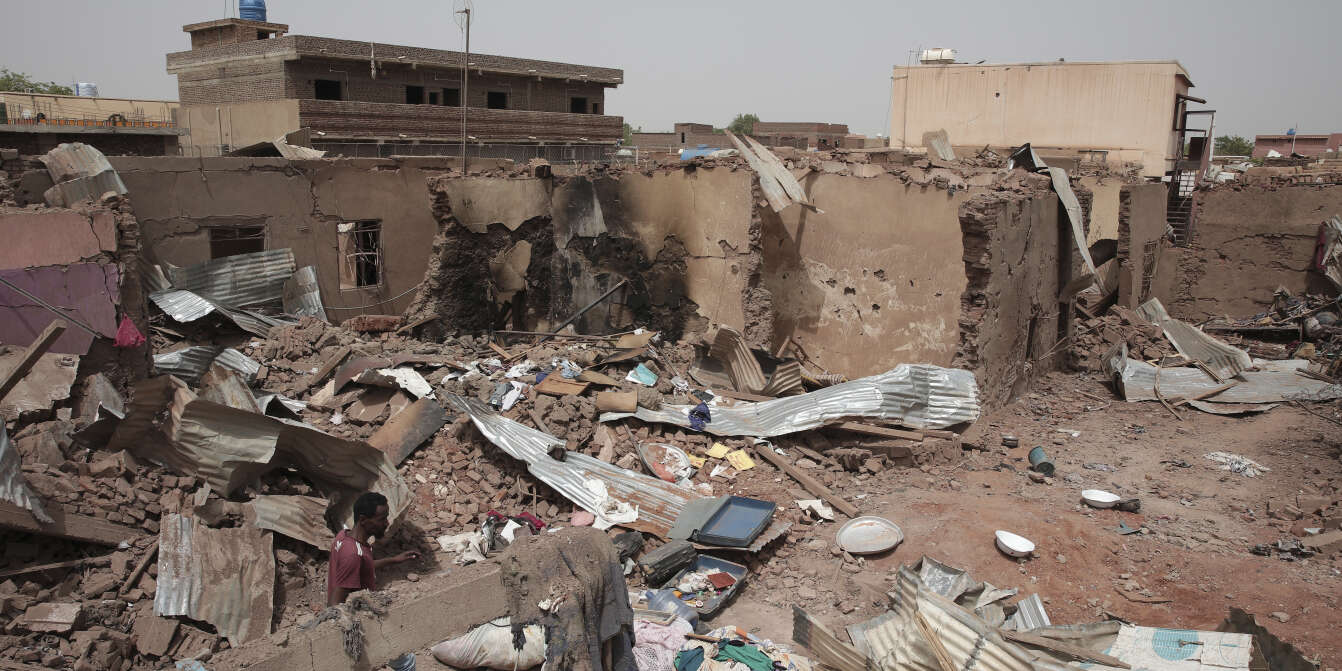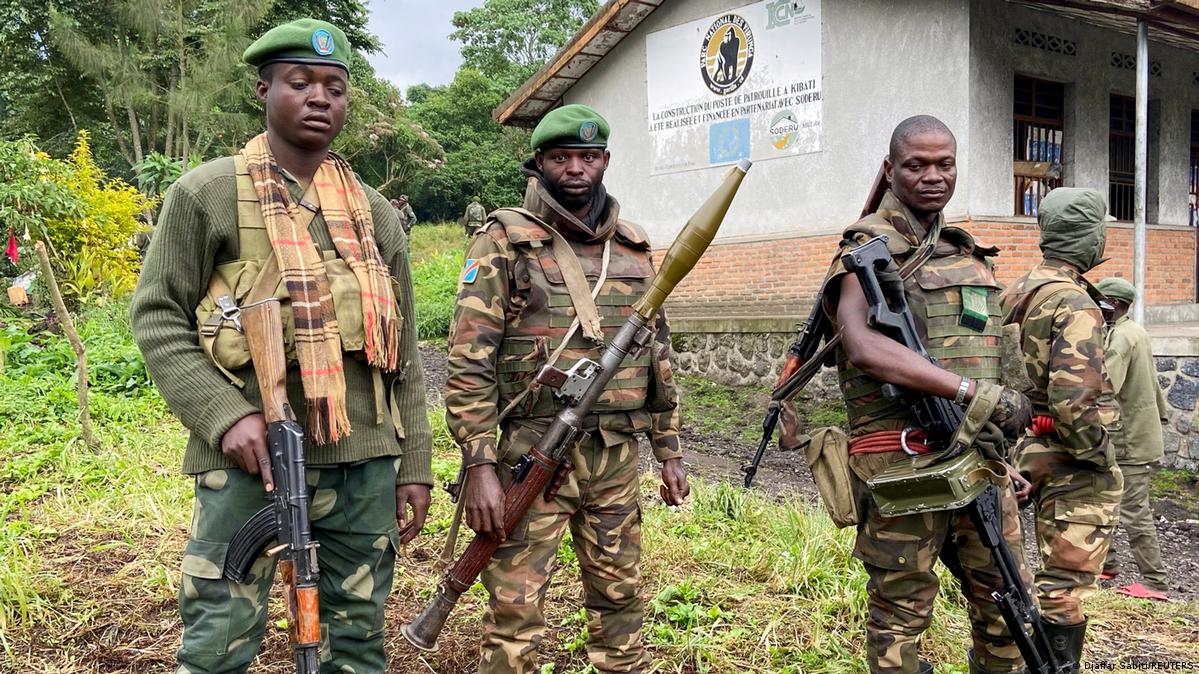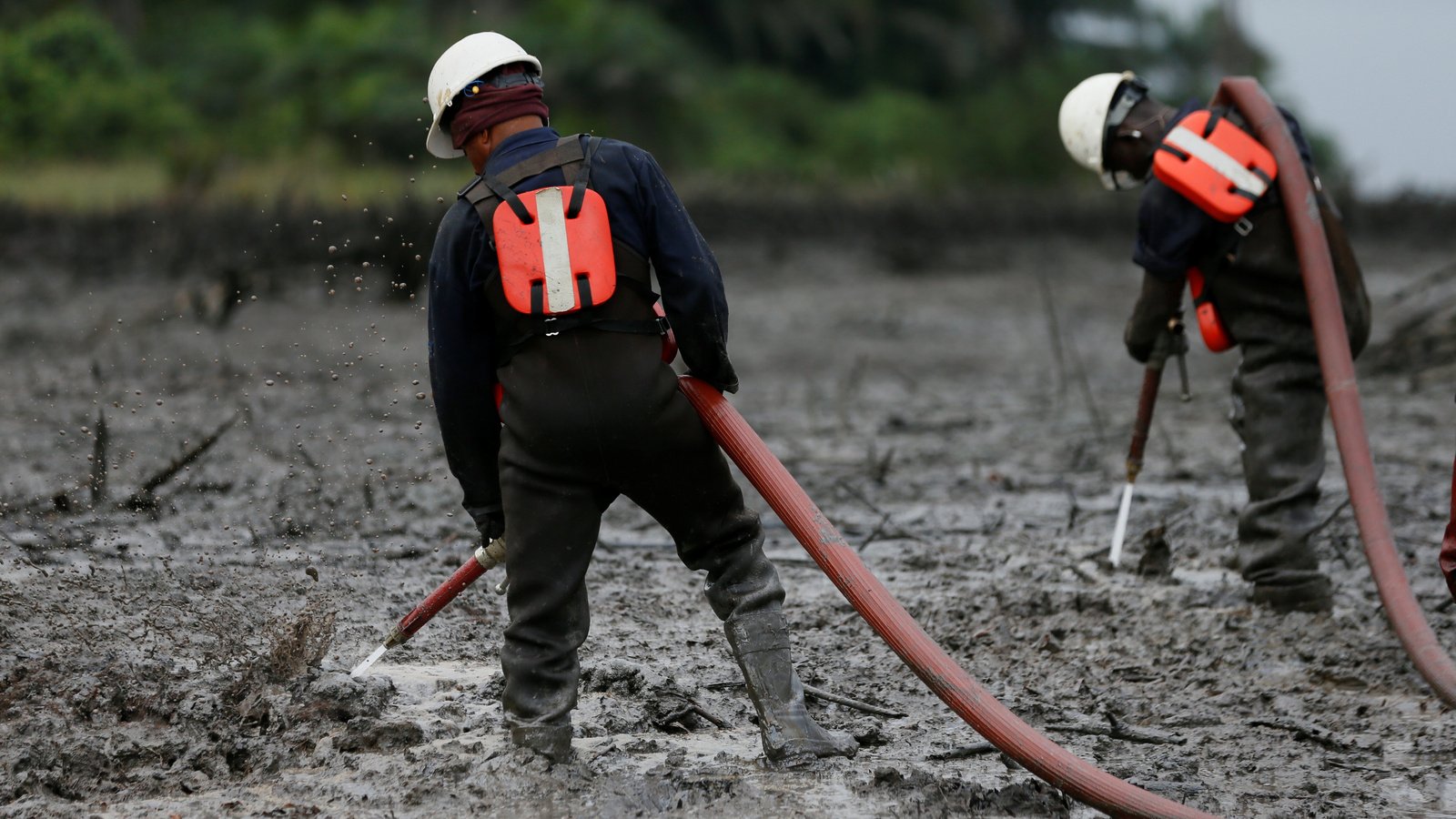Drought cripples Morocco’s agriculture, threatens food supply
Morocco’s six-year drought has devastated wheat production, impacting farmers, economy, and food security.
US sets date for ceasefire talks with Sudanese warring forces
The United States has invited Sudan’s SAF and RSF to ceasefire talks in Switzerland starting on August 14.
Egypt-linked convicted corrupt US Senator resigns
Bob Menendez was acting as an agent for Egypt’s government bowing to pressure from fellow Democrats to give up the job.
Niger military suffers heavy losses in battle with militants
Fifteen Nigerien soldiers were killed and sixteen wounded in clashes with armed militants in the Tillaberi region.
Nigeria police warn against Kenyan-style protests
Nigeria’s police chief warned against planned protests over economic hardship and poor governance, threatening a crackdown if demonstrations turn violent.
Ethiopia faces worst landslide in history, 226 dead
The disaster has prompted a massive humanitarian response as survivors search for loved ones and rebuild their lives.
South African president signs law to counter climate change
The Climate Change Bill aims to enable South Africa to meet its emissions reduction commitments under the Paris climate agreement.
Ghana calls for end Sudan war in African Union summit
President Akufo-Addo, speaking at a BADEA event, and AU’s Moussa Faki Mahamat call for resolution to Sudan’s conflict, highlighting the dire consequences for the Sudanese people.
Blue city charm: Exploring Chefchaouen
Nestled in the Rif Mountains, Chefchaouen, also known as the Blue City, captivates visitors
Al Qaeda affiliate claims deadly attack in Togo
An Al Qaeda affiliate has claimed responsibility for a deadly attack on a Togolese army barracks, marking a new chapter in the region’s growing insecurity.
Police break up protest, detain dozens in Ugandan capital
Ugandan security forces violently dispersed a banned anti-corruption protest in Kampala, detaining dozens of young demonstrators.
Death toll from landslide in Ethiopia climbs to 146
A landslide in southern Ethiopia has claimed the lives of at least 55 people, with many more feared missing.
Somali forces kill dozens of militants in retaliatory strike
Officials reported that dozens of al-Shabab militants were killed in recent clashes in southern Jubaland state. The clashes occurred following three coordinated attacks by militants on military bases held by federal and regional forces west and south of Kismayo town. Bulo Haji, Harbole, and Mido were among the bases seized from al-Shabab in the past month. The militants also targeted a fourth base at Bar Sanguni, apparently aiming to disrupt potential reinforcements. Major Mohamed Farah Dahir, spokesperson for Jubaland regional forces, told VOA Somali that 135 militants were killed in the attacks. “In total, we confirmed 135 killed,” he said. “We have also recovered weapons from the deceased. … I have never witnessed such a large number of casualties in one location in my life.” He stated that at least six militants were captured alive. He also noted that the most significant loss of life occurred in Bulo Haji. However, the federal government, which has troops stationed at the attacked bases, provided a different count of casualties. In a prepared statement, the federal Ministry of Information asserted that all assaults were repelled and over 80 militants were killed. Social media accounts have released purported video clips and photos showing numerous dead bodies. Al-Shabab asserted that their militants successfully took control of the bases and claimed that more than 70 soldiers were killed in their assaults. The casualty figures and video clips presented by both sides have not been independently verified by VOA. Al-Shabab has been battling to remove Somalia’s central government in Mogadishu for nearly twenty years. The government has partnered with local clan militias to combat the Islamist insurgents in an ongoing effort bolstered by African Union troops and U.S. air strikes. In the meantime, the Somali government has honored a prison guard with a medal for bravery who was killed after he refused to give the keys to militant prisoners during an attempted jailbreak at Mogadishu’s central prison on July 13th.
Uganda police out in force ahead of anti-graft rally
Police were out in force on the empty streets of the Ugandan capital Kampala on Tuesday ahead of a planned anti-corruption rally that has been banned by the authorities. President Yoweri Museveni, who has ruled the East African country with an iron fist for almost four decades, had warned the demonstrators at the weekend they were “playing with fire.” Three opposition lawmakers were remanded in custody late Monday, police said, after opposition leader Bobi Wine said his National Unity Platform (NUP) headquarters was “under siege” by police and army officers. The call to action over corruption has been organized online, drawing inspiration from the mostly Gen-Z led anti-government protests in neighboring Kenya that have roiled the country for a month. “We are the youths and heart of our country and we are not letting down our country,” leading Ugandan protester Shamim Nambasa told AFP on Monday. Posters shared online ahead of the rallies urged demonstrators to “march on parliament.” But police spokesman Kituuma Rusoke said the authorities will “not allow a demonstration that will risk peace and security of the country.” In the capital, AFP journalists said there were roadblocks on mostly quiet streets, especially near Kampala’s business district, heavily manned by officers in anti-riot gear with some wearing camouflage uniforms. A heavy police presence also remained in place around the NUP headquarters, an AFP journalist said. On Monday three lawmakers with the opposition group were detained by police on “various offenses and remanded to prison,” according to the police spokesperson who did not give further details on the charges. Wine, whose real name is Robert Kyagulanyi, had made calls on Monday to support the rallies. “We want a country where we all belong not for the few in power,” he said. A NUP spokesperson confirmed three legislators, named as Francis Zaake, Charles Tebandeke and Hassan Kirumira, along with seven others connected to the party, had been detained. Tuesday’s march has been organized on social media by young Ugandans with the hashtag #StopCorruption. Graft is a major issue in Uganda, with several major scandals involving public officials, and the country is ranked a lowly 141 out of 180 countries on Transparency International’s corruption index.
Niger: IMF approves $71 million disbursement
Niger will receive new loans from the IMF to implement reforms aimed at reducing risks to future balance of payments stability and addressing long-standing balance of payments challenges. The IMF’s Executive Board concluded the Fourth and Fifth Reviews of Niger’s economic program supported by the Extended Credit Facility (ECF) and the First Review under the Resilience and Sustainability Facility (RSF) on Wednesday. This milestone enabled immediate disbursements of SDR 19.74 million (approximately US$ 26 million) under the ECF, bringing total disbursements to SDR 157.92 million (about US$ 210 million), and SDR 34.216 million (about US$ 45 million) under the RSF. Niger’s ECF was approved in December 2021 and supplemented by the RSF in July 2023. Both arrangements were extended by six months until December 2025 to provide adequate time for implementing critical reforms and supporting fiscal consolidation efforts. While program implementation was generally on track by late June 2023, it was disrupted by a political crisis in the country, resulting in the accumulation of arrears in external and domestic debt service payments.
Cameroon tightens grip on free speech ahead of elections
Cameroon’s government has issued a decree allowing authorities to expel those who insult state institutions or the president.
Nigeria probes alleged import of contaminated fuel
On Monday, Nigerian lawmakers launched an inquiry into allegations of polluted fuel imports, aiming to address conflicts involving Aliko Dangote’s oil refinery and regulatory authorities. Chairman Ikenga Ugochinyere disclosed that the legislative committee is investigating claims of unregulated licensing and the absence of international standard laboratories linked to the contaminated products in Abuja. Aliko Dangote, President/CEO of Dangote Industries Limited, defended his position, expressing regret over the challenges faced but stressing the necessity to persevere through ongoing projects. The committee urged the parties in Nigeria’s petroleum sector to reduce tensions that have been heightened in recent weeks by allegations from the regulator that Dangote was trying to monopolize the market and that his refinery’s products are of poor quality. Dangote claimed that the mafia in the oil industry is more dangerous than the mafia involved in drugs. He emphasized that while you may have some knowledge of your opponents in the drug trade, the oil mafia operates in secrecy both internally and externally. He expressed his certainty that they may even have insiders aiding them in their operations. Dangote also lamented the fact that Nigeria has been struggling with fuel queues since 1972, calling it a national shame. The largest refinery in Africa, located in Lagos, has a capacity of 650,000 barrels per day. Despite being hailed as a game-changer by officials, the $19 billion facility has faced a slow start since opening over a year ago. Due to challenges in sourcing crude oil locally, the refinery has had to rely on imports from other countries, highlighting Nigeria’s struggles with oil theft and corruption. The refinery’s senior executive has also alleged that international oil companies in Nigeria are scheming to cause the refinery to fail. Devakumar Edwin, a vice-president of Dangote Industries, claimed that the companies are either intentionally demanding an exorbitant premium or stating that crude is not available. Farouk Ahmed, the chief executive of the regulatory agency, expressed concerns about Dangote’s request to suspend or stop the importation of petroleum products, citing potential market monopoly. However, Dangote refuted these claims and welcomed lawmakers to inspect the plant where its products were tested. He also clarified that he did not receive any incentives from the Nigerian government for the refinery and announced the cancellation of plans to invest in the steel industry. The origin of the dispute between Nigerian authorities and Dangote, whose companies dominate various markets, remains unclear. This conflict emerged after President Bola Tinubu succeeded Muhammadu Buhari, a close ally of Dangote, following last year’s presidential election. Analysts warn that such disputes could deter foreign investments and destabilize Nigeria’s economy. Nigerian economist Bismarck Rewane criticized allegations of low-quality products from the refinery, deeming them baseless without evidence or consumer complaints, suggesting deeper underlying issues.
UK’s migrant plan to Rwand criticized as costly failure
New home secretary reveals Rishi Sunak’s controversial Rwanda plan cost 700 million pounds in wasted taxpayer money.
What’s next for Rwanda under Kamage’s leadership?
Rwanda’s National Electoral Commission announced that Paul Kagame won his fourth term as president with over 99% of the vote, while his opponents.
South Africa stands firm with Palestine, Cuba, Western Sahara
Cyril Ramaphosa reaffirmed South Africa’s commitment to supporting Palestine Cuba and Western Sahara emphasizing his nation’s stance against oppression and subjugation.
Gunmen slaughter 26 in Mali village attack
Mali is once again the scene of a devastating attack, as 26 people were killed while working in their fields.
Urgent action needed to stop suffering in Sudan conflict — report
The MSF report details the devastating impact of Sudan’s ongoing war on civilians, including widespread violence, attacks on healthcare, and a humanitarian crisis.
Uganda hosts secret peace talks between DRC and M23
A new peace initiative is underway as the DRC government and M23 rebels meet in Uganda for negotiations.
Kenya grapples with sodium cyanide crisis
A truck carrying highly toxic sodium cyanide overturned in Kenya, leading to looting and widespread public fear as authorities scramble to recover the missing chemical.
Tanzania president fires two senior ministers in cabinet shake-up
Tanzania’s President Samia Suluhu Hassan has fired two senior ministers in a mini-cabinet reshuffle ahead of the 2025 elections.
Nigeria looks into refinery woes, dirty diesel
Nigeria probes fuel shortages, dirty fuel imports, and a clash between Dangote Refinery and regulators.
Nigerian doctor draws massive ‘unity in diversity’ artwork
Combining his passions for art and his homeland, Nigerian doctor Fola David is vying for a Guinness World Record.





